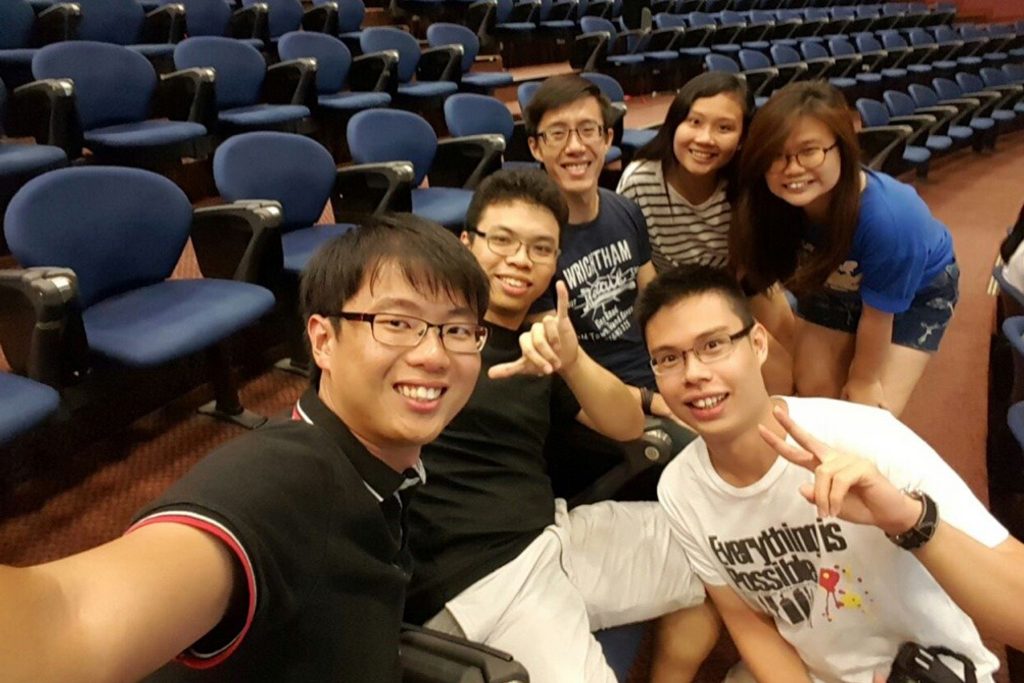Our Alumnus Speaks …
Alumnus Mr Ryan Goh Wei Quan [BSc & BSSc, 2018] shared about his university education and present undertaking as a G10 Interest Rates Derivatives trader.
It’s interesting you chose to major in Physics and Economics. Share with us why such a combination.
I was intrigued by the similarity between Physics and Economics in terms of the logical way both subjects utilise when analysing new data and theories. In both cases, we often begin with a hypothesis (and usually a mathematical expression of the proposed theory) before experiments are conducted to test it out. In Physics, experiments are conducted in laboratories, while in Economics, the world is our laboratory. Subsequent analysis will have to be performed after collating the results and we see how our proposed hypotheses perform and whether any tweaks are needed.
It’s true that when taken at face value, Physics and Economics seem to occupy the dichotomous ends of the spectrum, but having been through a double degree course in both Physics and Economics, I have seen how transferable the skill sets are amongst these subjects in terms of the way analysis is conducted and problems are solved! As an added bonus, the mathematical tools that we have learnt in Physics (perhaps too many at times) is really useful for Economics too! It is important to note that Economics is as much a Science as it is an Art, and more often than not, statistical analysis of data does require a certain level of mathematical manipulations—something which a study of Physics can endow one with a comparative advantage in.
I have to point out that Economists do appreciate the mathematical abilities of Physicists—case in point: in the 1970s, Fischer Black (who has a bachelor’s degree in Physics), Robert Merton and Myron Scholes started on developing a theory for option pricing (it’s known today as the Black Scholes equation) and came up with a differential equation which actually has a root in mathematical physics as it shares the same structure as the heat equation! It is certainly not too far-fetched to claim that it was the equation which led to the influx of mathematicians and physicists to devise trading algorithms and strategies in finance.
Tell us more about your current field of work.
I presently trade interest rate derivatives which encompasses interest rate swaps, futures and bonds. These are financial derivatives which help clients hedge their interest rate exposure and speculate on the direction of rates. They are also used for offshore clients to swap proceeds back to their home country. My role as a trader involves active risk management, pricing and quoting these derivatives to clients (and ensuring that the bank makes a profit from these transactions of course). What I particularly enjoy in my present job is the fact that no two days are ever the same given the dynamism of financial markets and how markets react to things that are happening around us. Even a speech by central bankers get parsed carefully by markets and affect asset prices accordingly (sometimes perhaps very wildly).
After our team in London takes over, things quieten down a little, and I use that time to conduct statistical analysis of the price action we observe, study market trends, build models that enable us to forecast and project yields and evaluate the performance of trading strategies.
And the next day begins again, only different.



How relevant do you think a physics education is to your present undertaking?
I think it is actually highly relevant and useful! Firstly, the mathematical skills which I acquired through Physics really helped me a lot (pricing financial derivatives can sometimes involve a little math here and there) and particularly so when I’m doing analysis on data and forecasting interest rates (which are intrinsically uncertain, and thus some stochastic calculus may actually help here).
Above all, I think the framework for problem solving which I have learnt through my study in Physics is the most relevant since I get to apply them to this job. When solving Physics problems, we often have to start from first principles and navigate our way accordingly (using math and sometimes logic) to attain the final result. This is the framework which I adhere to— sometimes when pricing or structuring a complex derivative product (in which we do not have a vanilla instrument to reference to), I have to decompose it into smaller, manageable parts, and work my way up from there.
The data analysis skills that we have learnt through the lab sessions is also highly relevant too, given that we are living in the age where data is virtually part of our everyday life. The analysis and interpretation of data is a skill that one will acquire through experience, and it is useful for a majority of the fields which our graduates choose to embark on.
How do you think undergraduates could better equip themselves to succeed in today’s workplace?
Question everything! It is very easy to follow the worked example given in the textbooks or lecture notes, but more often than not, what is “obvious” becomes not so very “obvious” the moment we cover up the workings and attempt the problem from scratch. If things do not make sense or are unclear, do your own research to find out why (or ask someone if all else fails).
I am also of the view that programming and data analysis is an important skill which all our undergraduates should have given that the workforce is becoming increasingly competitive, and the integration between man and machine is only going to increase moving forward to the future. Do not get me wrong—I wasn’t a “whiz-kid” who started tinkering with computers and coding since young. In fact, my first “real” exposure to coding came quite late when I was taking the Level 2000 Quantum Mechanics course under Dr Yeo Ye. It was through the course that I got my hands dirty with Mathematica, and I realised its power in handling and solving complex equations (and how we may get different numerical answers through the use of different solving methods too). It is never too late to learn this skill, and it is something which I continue to learn every day for each project that I embark on tends to involve different kind of data manipulation and statistical methods, but most importantly, the fundamental principles and techniques remain the same!
Finally, when it comes to exploring career options, do not be limited by preordained expectations of what your career path should be based on what you study. There is no such thing as “I studied Physics so I have to become XXX” or “I study Mathematics so I can only explore career options in YYY”. Many firms are now recognising the benefits endowed with a multi-disciplinary graduate pool. In banks, we are starting to see chemists and life science majors occupying roles which are typically “reserved” for finance students. Naturally, you have to work harder to prove yourself in fields which are different from what you studied (as, in a certain sense, you lack a comparative advantage amongst other candidates), but if you are truly passionate about any field, go for it!
